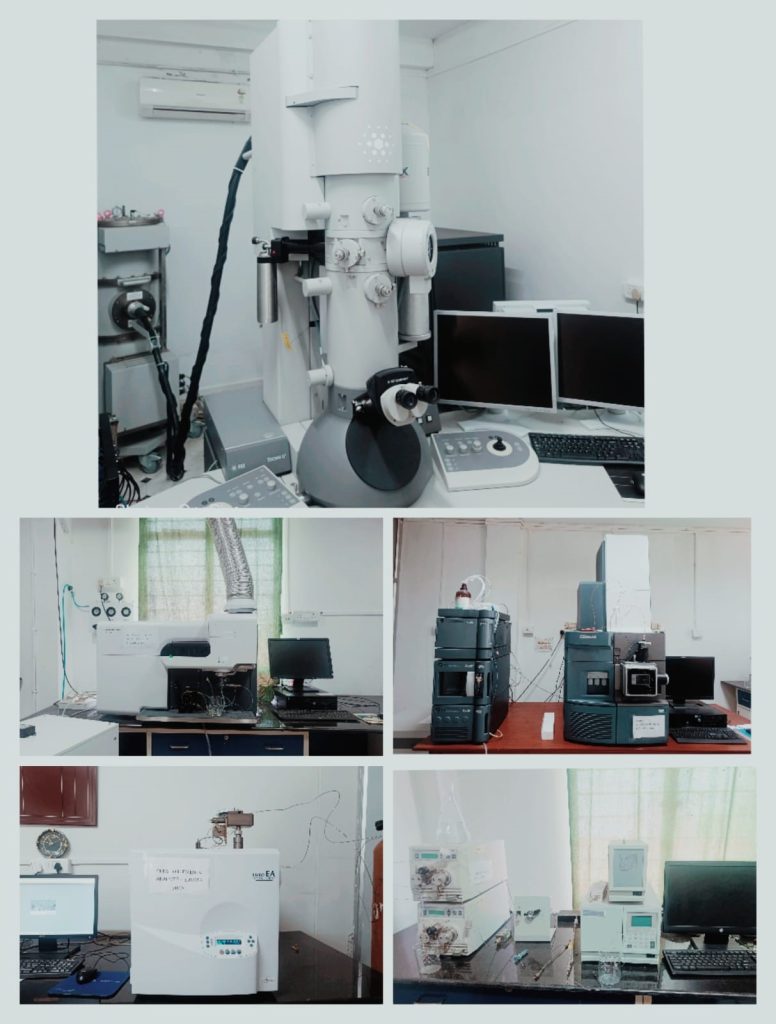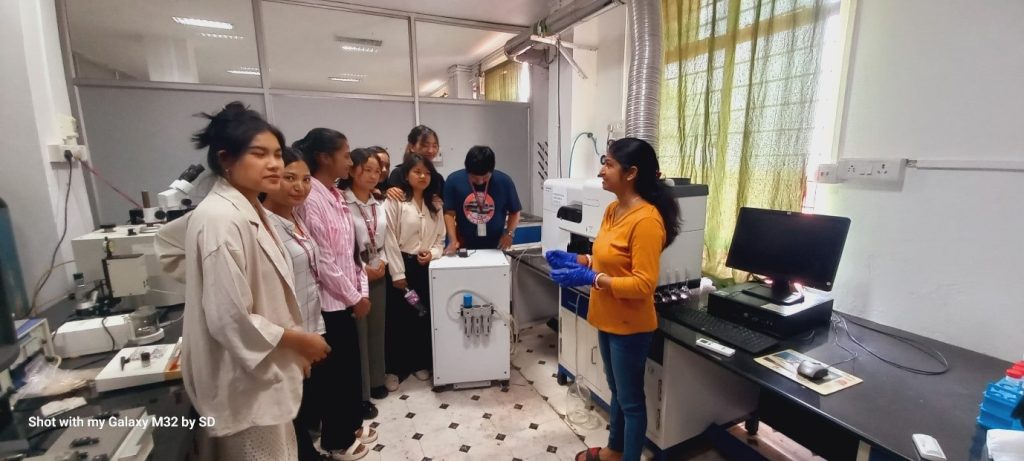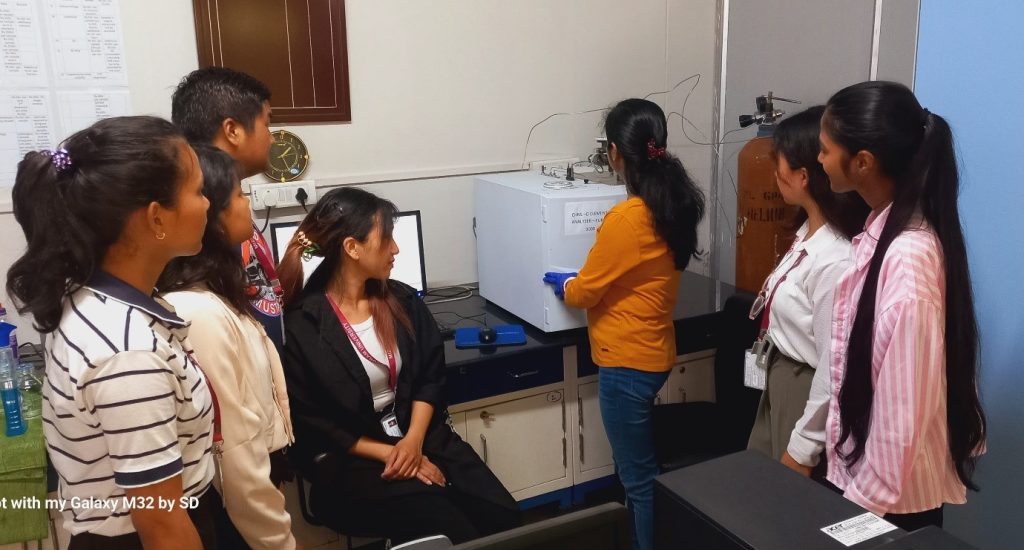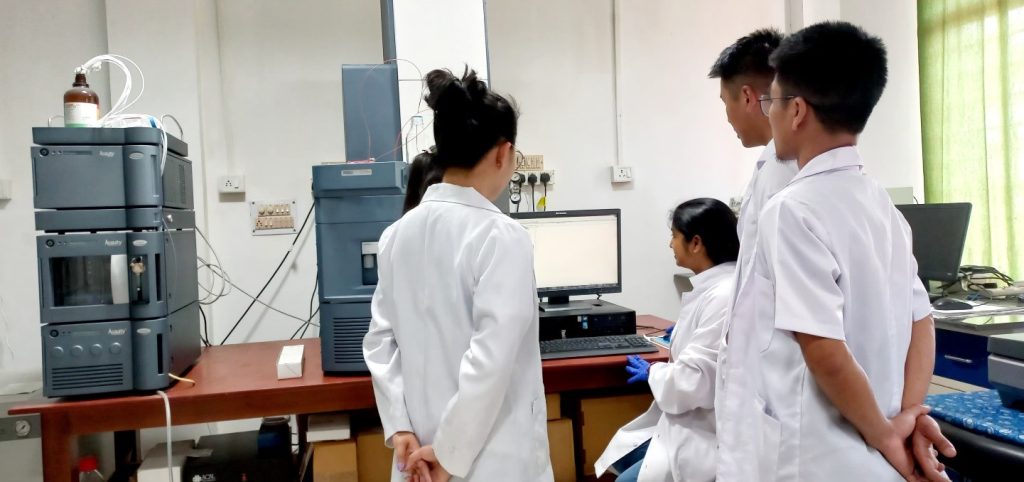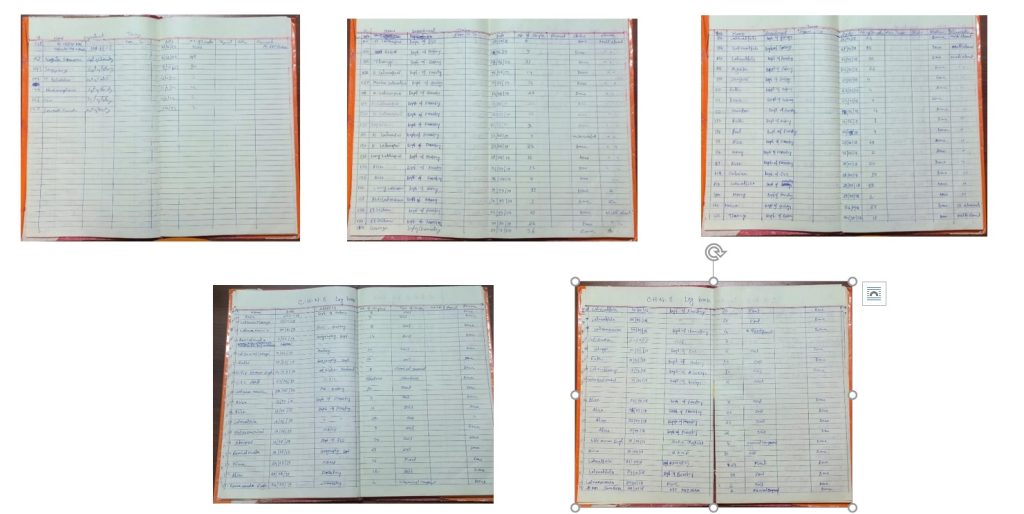Central Instrument Laboratory
Established: 2012
Dr. Surya Kant Mehta (Head)
Professor, Dept. of Botany
Email: skmehta12@rediffmail.com
About:
The Central Instrument laboratory was established in year 2012 with approx. Rs. 8.5 Crores from UGC, New Delhi. Objective of CIL was to procure and install high-end instruments which are not generally available to departments.
Main Function:
The Central Instrument Laboratory (CIL) acts as a cornerstone for advanced research at Mizoram University. Established in 2012, it houses a range of cutting-edge equipment like TEM (Transmission Electron Microscope), LC-MS (Liquid Chromatography-Mass Spectrometry), MP-AES , CHNS, HPLC, etc – tools typically unavailable in individual departmental labs. This centralized facility allows Master’s and Ph.D. students, along with faculty members, to use these instruments for their research projects and thesis work. The CIL doesn’t just benefit internal researchers; it also extends its services to external institutions, promoting collaboration and knowledge sharing across sectors. This fosters a vibrant research atmosphere at the university, with interdisciplinary applications spanning physical, environmental, biological, and social sciences.
List of the Staff in the centre:
| Sl | Name | Designation | Phone |
| 1 | Sagarika Das | Sr. Technical Assistant | 908515027 |
| 2 | C. Lalrinawma | Laboratory Assistant | 9612519820 |
Vision:
To be a premier central research facility, empowering scientific advancements across disciplines at Mizoram University and beyond, through accessible, state-of-the-art instrumentation and fostering a collaborative research environment.
Mission:
To provide advanced analytical instrumentation and technical expertise to support high-quality research for students, faculty, and external collaborators. The CIL strives to promote scientific discovery, technological innovation, and knowledge dissemination across various disciplines at Mizoram University and the broader scientific community.
Objectives:
- Provide advanced analytical instrumentation and technical expertise to support research projects and thesis work of Masters, Ph.D. students, and faculty members.
- Foster a collaborative research environment within the university by encouraging interdisciplinary use of the equipment.
- Extend services to external institutions and industries in Mizoram and beyond, facilitating collaborative research projects.
Functions:
- Equip researchers with advanced analytical instruments for complex analysis.
- Offer technical guidance to students, faculty, and collaborators on operating the equipment effectively.
- Foster a collaborative research environment within the university by enabling interdisciplinary use of the instruments.
- Conduct regular maintenance and calibration of the instruments to maintain their accuracy and lifespan.
Contribution of the Central Instrument Facility:
- By providing access to high-end instruments the CIL empowers students, faculty, and collaborators to conduct advanced research projects and thesis work that might otherwise be limited. This fosters a culture of scientific exploration and discovery at the university.
- The CIL doesn’t just provide instruments; it also offers training. This equips researchers with the necessary skills to utilize the equipment effectively, ultimately leading to higher quality research output.
- Access to advanced instrumentation at the CIL has significantly accelerated the research process for students. Tasks like sample analysis or data acquisition become more efficient, allowing students to focus on interpreting results and drawing conclusions. This can lead to faster completion of theses and master projects.
Contribution of Central Instrument Laboratory in academic related aspects of the university:
- The availability of advanced instrumentation at the CIL enables students to generate high-quality data for their theses and projects. This strengthens the credibility and significance of their research findings, making their work more competitive in academic circles.
- The diverse equipment portfolio allows students to explore a wider range of research topics. Techniques like electron microscopy or mass spectrometry open doors to investigations that wouldn’t be feasible with basic lab equipment. This broadens the overall research landscape at the university.
- Microwave Plasma-Atomic Emission Spectrometer – Agilent 4100 MP- AES
- UV-VIS-NIR Spectrophotometer – Hitachi U4100L
- CHNS/O Elemental Analyzer with autosampler and TCD detector –Euro Vector, Model: EuroEA3000
- Transmission Electron Microscope (TEM) – FEI Technai G2 20 TWIN with EDAX Analyzer
- Tandem Quad-TOF Analyser, coupling facility with Liquid chromatography Mass Spectrometer (LCMS)- Waters Xevo G2 QT of MS along with accessories
- Isoelectric Focusing Unit (IEF) & 2D – GE Healthcare
- Gel Running system (Hoefer) along with power pack
- Image Scanner III- GE Healthcare
- AKTApurifier 10 Core System with Pump P903, Monitors UV900 & pH/C 900, unichrome refrigerator.
- Liquid Scintillation Counter- Hidex, Finland, Model: 300SL automatic TDCR
- Real Time PCR Machine (RT-PCR) – Applied Biosystems STEPONE PLUS, 96 Well
- *Gradient Thermal Cycler – Applied Biosystems, Model Veriti 96 Well.
- *Universal Mutation Detection System (DGGE) – Biorad, Model: DCode
- *Gel Doc- Biorad (EZ Imager)
- *Speed Vac Concentrator – Operon
- Gradient HPLC with UV Detector- Waters
- *Gradient HPLC with RI Detector- Waters
- *Gas Chromatography (GC) with FID Detector – Thermofisher Scientific
- Pulse Amplitude Modulated Fluorimeter-DUAL-PAM-100- Heinz Walz
- *Oxygen Measurement Controller (digital, model no 10) equipped with Dissolved Oxygen Electrode – Rank Brothers
- ULTRACENTRIFUGE (Refrigerated, 10,00,000 rpm; 8,03,000 rcf) – Hitachi: model no. CP100WX with various rotors
- Thermoluminiscence dosimeter Reader with Hot air annealing oven (14”x14”14”), 350/400 degree C. – Nucleonix Systems TL 1009
- Lyophilizer cum Freeze dryer-6L condenser capacity (-80°C) – Esquire Biotech.
Note: Equipments marked with * are not the part of CIL and are installed in Botany Department. These equipments are available for use as of CIL.
User Charges:
Download the requisition form from our website & send the filled requisition form by e- mail to skmehta12@rediffmail.com.
All charges will be accepted in form of DD in the name of Finance Officer, MZU and payable at Aizawl. Users have to pay service tax with user charges according to service Tax Act as given below:
12% Service Tax + 2% of 12% as Education Cess + 1% of 12% as Higher Education Cess = 12.36% Click here to download the TEM- Requisition Form
Click here to download the TEM- Requisition Form
Professor S. K. Mehta
In-Charge CIL
Department of Botany, Mizoram University
Aizawl-796004
Email: skmehta12@rediffmail.com
Phone: 91-389-2330733; Cell: 91+9436353046
1st April 2018 – 31st July 2023 | |||
| S. No. | Name of Event | Organizer | Date of Event |
| 1. | Sample analysis: More than 5000 samples have been analyzed for heavy metals content, C, H, N, S content of several environmental samples | Central instrument Laboratory | Samples were received through out year |
| 2. | Training to students and faculty on operation of HPLC, CHNS, MP-AES | Central instrument laboratory | Through out years |

